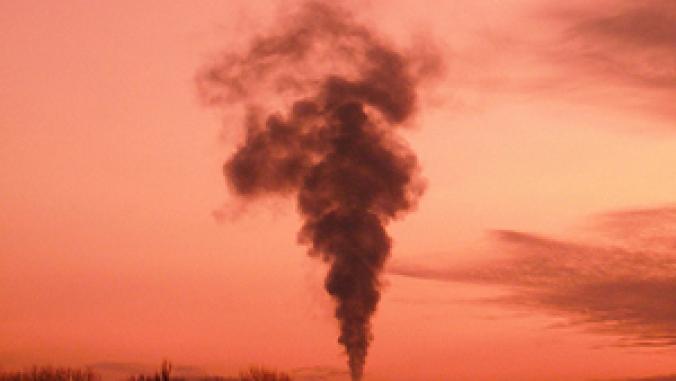Passing Climate Tipping Points Would Devastate Ecosystems, Economies
<p>A new report explores a variety of climate tipping points, explaining what it would take to reach and pass them, how close we are to them, and what the consequences would be, particularly for the insurance sector.<br /> </p>

Rocks - http://www.flickr.com/photos/jamesjordan/ / CC BY-ND 2.0
Rising global temperatures could take the world past a number of tipping points, the results of which would have enormous environmental, social and economic impacts on ecosystems and regions around the world.
A new report from WWF and financial services company Allianz explores a variety of tipping points, explaining what it would take to reach and pass them, how close we are to them, and what the consequences would be, particularly for the insurance sector.
The groups have released the report now in hopes that it spurs action at the upcoming United Nations Climate Change Conference in Copenhagen that takes into account possible impacts and attempts delay or prevent the tipping points from being reached.
The U.S.'s East Coast, California, India and Nepal, and the Amazon rainforest are some of the areas that could be devastated, affecting hundreds of millions of people and costing hundreds of billions of dollars.
"As an insurer and investor, we must prepare our clients for these scenarios as long as we still have leeway for action," said Clemens von Weichs, CEO of Allianz Reinsurance, in a statement. "Setting premiums risk-appropriately and sustainably is of vital interest to everyone involved, because this is the only way to ensure that coverage solutions will continue to exist."
Melting ice shields could cause the global sea level to rise 0.5 meters by 2050, increasing the value of assets in 136 port cities threatened by higher seas levels by more than $28 trillion. Along the northeastern coast of the U.S., a sea level rise of 0.65 meters would put an addition $6.05 billion worth of assets at risk.
California, on the other hand, could experience increased, and more intense, droughts and aridity that could lead to a tenfold increase in damage from wildfires. Annual damages would be expected to increase to $2.5 billion a year by 2050 and $14 billion by 2085.
Droughts could also affect 70 percent of workers in India, increasing the future costs of droughts to $40 billion per decade until 2050, and could also cause a massive decline in the health of trees in the Amazon rainforest, leading to loss of biodiversity and substantial carbon releases, increasing costs to $9 billion.
Allianz plans to address climate change by talking about risks with clients early on, explaining countermeasures and working together on specific coverage that takes into account existing assets or future climate-compatible projects like alternative energy and protecting against failed harvests.
The report, Major Tipping Points in the Earth's Climate System and Consequences for the Insurance Sector, (PDF) is available from Allianz and WWF.
Rocks - http://www.flickr.com/photos/jamesjordan/ / CC BY-ND 2.0




